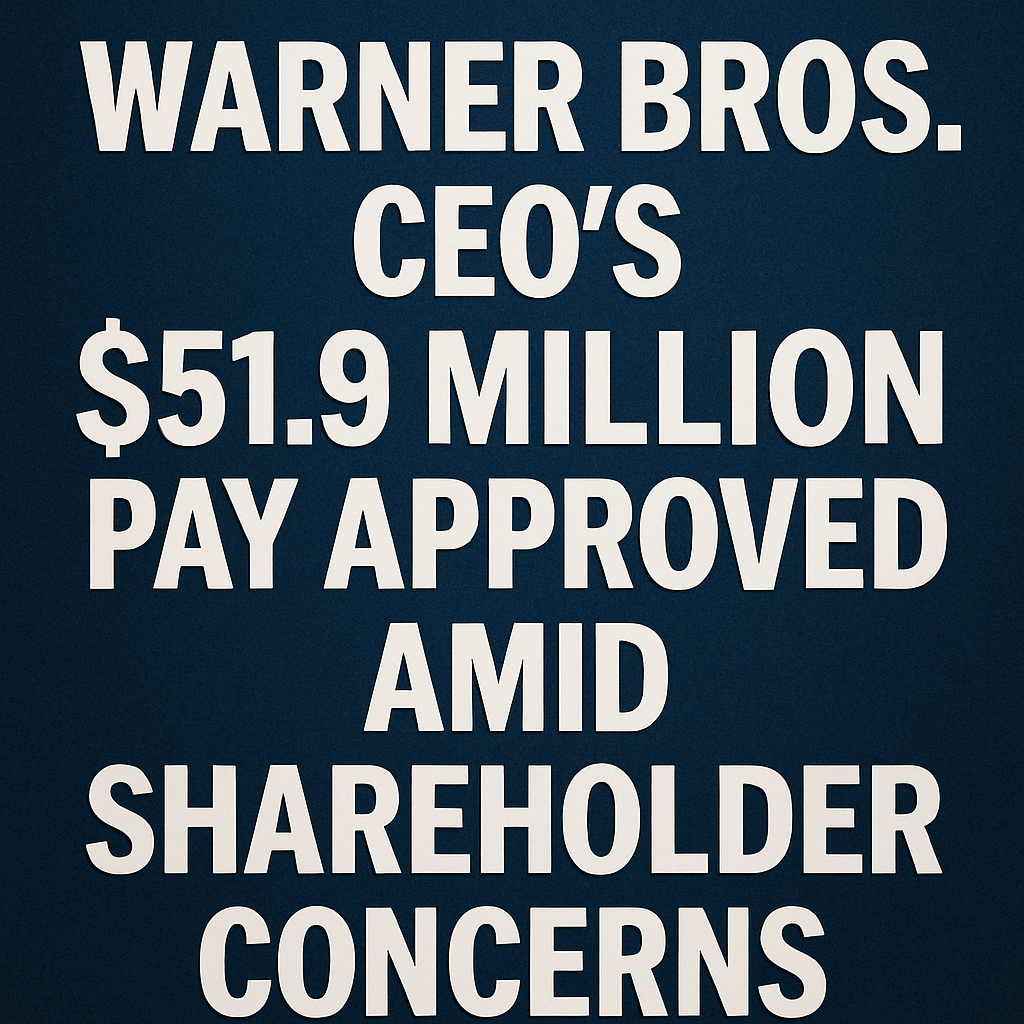Warner Bros. CEO’s $51.9 Million Pay Approved Amid Shareholder Concerns

In a notable divergence between management decisions and shareholder sentiment, David Zaslav, the CEO of Warner Bros. Discovery (WBD), is set to receive a compensation package valued at $51.9 million for the fiscal year 2024. This decision comes after an overwhelming shareholding vote rejected the proposed pay package.
Shareholder Vote Overview
The “Say on Pay” vote, held recently, saw an approximately 60/40 disapproval ratio, with 1,063,214,128 votes cast against Zaslav’s pay package and only 724,453,004 votes in favor. This striking reversal from the previous year’s approval, where the pay package received a 53% majority, highlights growing concerns among shareholders regarding executive compensation structures.
Symbolic Nature of the Vote
Notably, the results of this advisory vote are nonbinding. This means that while shareholders expressed strong discontent regarding Zaslav’s remuneration, the WBD board retains the ultimate decision-making authority over executive pay. The board stated that it “appreciates the views of all its shareholders and takes the results of the annual advisory vote on executive compensation seriously.” It further emphasized that the Compensation Committee will pursue constructive dialogue with shareholders to address their concerns.
Details of the Pay Package
Zaslav’s proposed salary represents a 4% increase from the previous year, equating to an additional $2.2 million. Compared to his peers in the media industry, Zaslav’s pay is significantly higher, outpacing leaders such as Disney’s Bob Iger ($41.4 million), Comcast’s Brian Roberts ($33.9 million), and SiriusXM’s Jennifer Witz ($32.1 million). This raises important questions about pay-for-performance ratios across the industry, especially as many companies are reevaluating their compensation frameworks in the wake of economic pressures.
The Role of Shareholder Advisory Firms
Institutional Shareholder Services (ISS), a prominent shareholder advisory firm, recommended against the approval of Zaslav’s pay package prior to the vote. The ISS cited concerns about “inadequate responsiveness and an unmitigated pay-for-performance misalignment.” Such opinions from advisory firms increasingly influence shareholder action, posing a significant challenge for companies reluctant to adjust executive compensation amid shareholder dissent.
Market Trends and Broader Implications
Although the vote was largely symbolic at WBD, it aligns with a broader trend within the corporate landscape where shareholder activism is becoming more pronounced. For instance, Netflix, after facing similar backlash in 2023, adjusted its executive compensation structure, demonstrating that investor influence can indeed lead to real changes. The examination of executive compensation has gained traction, particularly as corporate governance and accountability come under increased scrutiny from both institutional and retail investors.
The Future of Executive Compensation in Media
As media conglomerates like WBD navigate the shifting landscape of viewer preferences and advertising revenues, the alignment of executive compensation with shareholder interests will become increasingly crucial. Investors will likely continue to demand transparent and equitable compensation models that reflect the performance outcomes of the company. The ongoing discussion surrounding Zaslav’s compensation package illustrates the tension between maintaining high executive salaries and ensuring shareholder value.
As the market continues to evolve, understanding the implications of executive pay on company governance and performance will be vital for investors and executives alike.